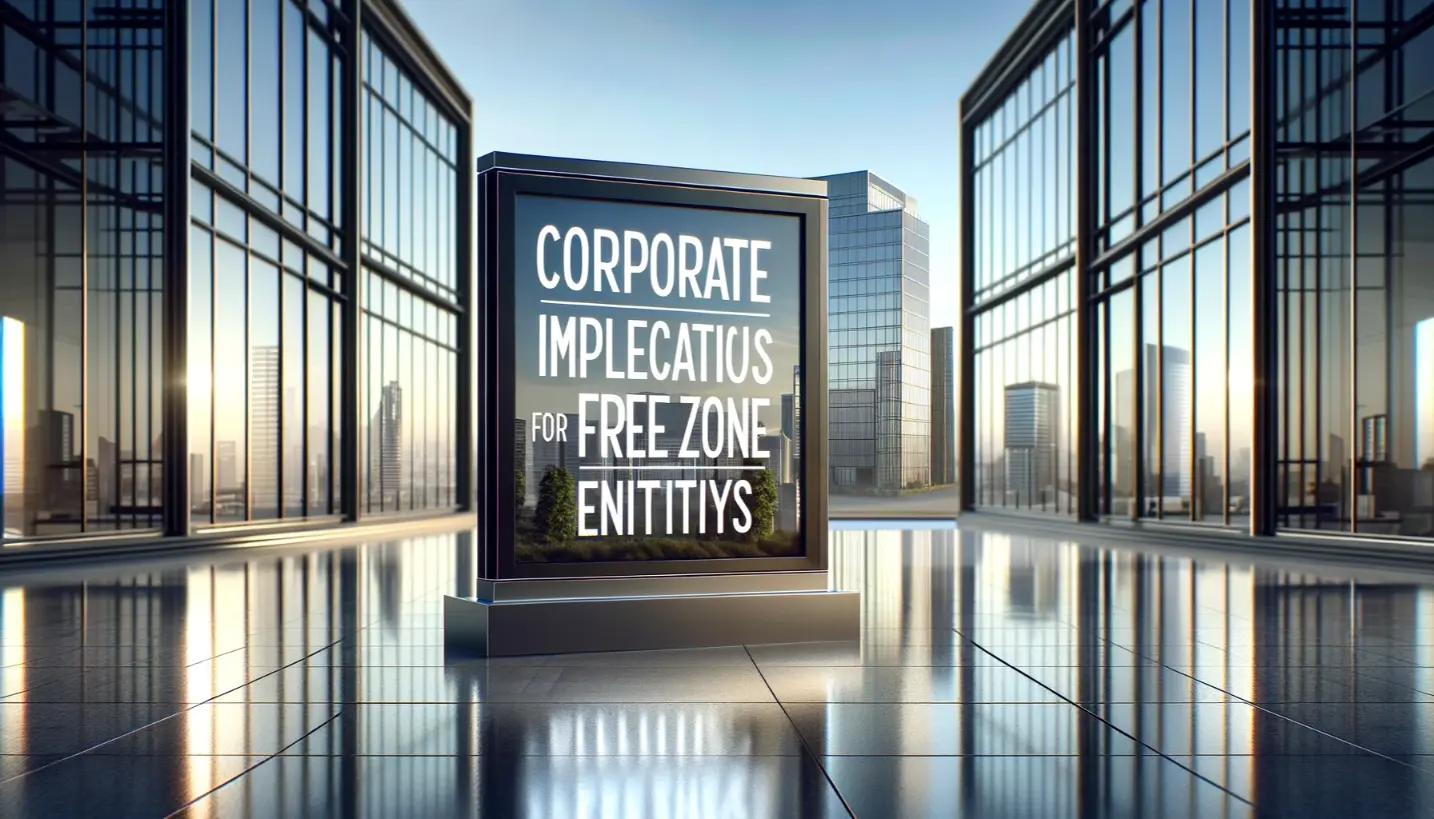Free zones in the United Arab Emirates (UAE) have emerged as attractive hubs for businesses seeking a dynamic and tax-advantaged environment. While these designated economic zones offer many benefits, understanding the corporate tax implications for companies operating within free zones is crucial. This guide delves into the intricacies of UAE corporate tax for free zone persons, providing insights for businesses to make informed decisions.
A Free Zone company in the United Arab Emirates (UAE) is a specialized business entity that operates within designated economic zones known as free zones. These zones are strategically established to provide a business-friendly environment with various incentives and benefits, ultimately aiming to encourage foreign investment and business setup.
Ownership: In free zones, foreign investors enjoy a remarkable advantage – they can have 100% ownership of their companies.
Repatriation of Profits and Capital: Free Zone companies allow full repatriation of profits and capital without restrictions, allowing business owners to transfer their earnings and investments outside the UAE.
Infrastructure and Facilities: These zones offer state-of-the-art infrastructure, facilities, and services to support various industries. Modern office spaces, warehouses, and business-friendly amenities create a conducive business environment.
Regulatory Environment: Free zones operate under their regulatory authorities, streamlining the business setup process. These authorities handle licensing, registration, and other administrative procedures.
Customs Regulations: Free zones boast relaxed customs regulations, facilitating the import and export of goods. Goods can often be imported, stored, and re-exported without incurring customs duties.
With 46 free zones in the UAE, including prominent ones like Dubai Free Zone, Abu Dhabi Global Market (ADGM), Jebel Ali Free Zone (JAFZA), and Sharjah Airport International Free Zone (SAIF Zone), businesses have a variety of options to choose from based on their industry and operational requirements.
However, it’s crucial to note that while free zones offer significant advantages, businesses operating within them are generally restricted to conducting business activities within the free zone or internationally. Additional steps and arrangements may be necessary if a free zone company wishes to operate on the UAE mainland.
If your business is registered in a Free Zone and meets specific criteria, it may qualify for a special 0% tax rate on qualifying income. To be eligible, you need to:

“Qualifying income of a Qualifying Free Zone Person” refers to the money earned from dealing with other businesses in the Free Zone and income from Qualifying Activities as listed in the official decision by the Minister. These activities can occur within the country or internationally.
“Qualifying Activities” encompass various business operations, including making goods, processing materials, holding shares, managing ships, offering reinsurance, managing funds (under UAE regulatory supervision), providing wealth and investment management services (under UAE regulatory oversight), and more.
This also includes headquarters services to related businesses, financial services to related parties, financing and leasing of aircraft, logistics services, distribution from a designated zone meeting specific conditions, and any other activities related to the mentioned operations.
Certain activities are excluded from qualifying income, regardless of whether they involve a Free Zone Person or are part of a qualifying activity. Excluded activities include:
Transactions with individuals.
Income from regulated financial services.
Income from intangible assets.
Income from immovable property, except for commercial immovable property transactions with Free Zone Persons.
To be eligible for the special tax treatment, the non-qualifying revenue earned by a Free Zone Person must be at most the lower of either 5% of their total revenue or AED 5,000,000.
Revenue from a Free Zone Person’s permanent establishment inside or outside the UAE and immovable property in a Free Zone that doesn’t qualify for the special tax treatment won’t be considered for the minimum requirement. Instead, the associated taxable income will be subject to the regular UAE Corporate Tax regime at 9%.
If a Free Zone Person fails to meet the de minimis requirements or other qualifying conditions, they won’t be eligible for the benefits of the Free Zone corporate tax UAE regime for at least five (5) years.
During this time, they will be considered a regular Taxable Person and subject to a Corporate Tax rate of 9% on their Taxable Income above AED 375,000. In essence, failure to meet the conditions results in the loss of the special tax treatment, and the business must adhere to standard tax rules for at least five years.
Understanding the intricacies of UAE Corporate Tax for Free Zone Person is essential for businesses aiming to leverage the benefits of these economic zones while ensuring compliance with the regulatory framework. By meeting the specified criteria and navigating the world of qualifying income and activities, businesses can optimize their tax positions and contribute to the thriving business landscape within the UAE.